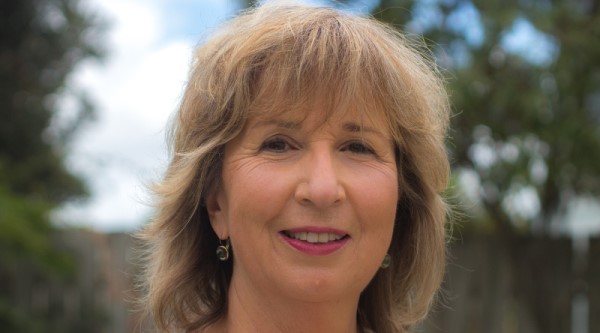Martin produced this article early in 2020. The principles are sound. We live in New Zealand with the historical name , the “Shakey isles” (earth quakes etc) and the same has application to the Financial Markets.
Diversify, Diversify, Diversify
This is certainly a time when one plan does not suit all.
Moreover this is the fourth major crash that I lived and invested through, and I am still standing, investing and looking forward to climbing mountains again. Every crash that I have lived through has felt like the end of the world as we know it. Nevertheless, bad though it is and terrible that people will die, it is most likely that this crisis too will end one day.
I have been asked to write this piece for those in retirement or near retirement. These people tend to be different because they are (or about to be) reliant on investments for their retirement income. As such, they are looking for a safe investment that gives high income.
Typically, in the past, people have found an asset like that in bank deposits and fixed interest investments. Although these were never absolutely safe, they were simple enough and gave fairly reliable income.
This is no longer the case: these kinds of investment, bank deposits, term deposits and other fixed interest investments, no longer give much income – and that income looks set to continue to fall. Moreover, we know that these investments are not perfectly safe: banks and other issuers of debt investments have failed in the past (although our banks appear to be solid, at the moment).
So, what to do with your money? First, if you are one of the few lucky ones and are currently cashed up, it would probably pay to hold on to some of your cash for the time being. Cash gives flexibility and although you should hold on to some, a part can be invested.
However, there are few people who I would advise to stay 100% in cash. You do need to remember that bank deposits do not come with a government guarantee and banks have failed in the past. We do not know where this current crisis is going, and I would not have 100% of my money in any single asset and that would include having 100% in cash.
As a store of wealth, you cannot beat a diversified portfolio. Holding a small amount in every different investment type (usually through a fund) ought to cover you from any likely economic event. There is no single investment type which will do well in every economic circumstance and the best thing is to protect yourself by spreading your money wide.
Clearly with a diversified portfolio you want to have a range of different investment types: shares, property, fixed interest and cash. Moreover, you should be diversified not just across each investment type but diversified by industry and geography.
In crises like this when there is so much uncertainty you want all asset types, even shares. These shares ought to be of a type that will continue to give income e.g. utilities, infrastructure or simply good strong businesses. These shares are ones that will continue to pay dividends and these dividends will improve your returns especially when the recovery starts.
You will probably have only small amounts of shares at the moment but you should not be completely without them – no one knows when markets will recover. Share values are down but there are certainly companies that will be able to continue to pay dividends which will make up sorely needed income.
You have to be wary of trying to time the market. International research house, Morningstar, shows clearly if you happen to miss the best month in any one year, your returns will be drastically reduced.
People who are already in the market should remember this and hold on. It is likely that there will be more losses but there will be a recovery. The only way that you can be sure that you will fully benefit from the recovery as markets bounce off the bottom is to hold right through.
Owning a little bit of everything in a diversified portfolio reduces the risk of being wiped out completely by a particular economic event. There will still be volatility in the portfolio but less absolute loss. We do not know what will happen; we do not know when this will end. The chances are there will continue to be losses, but whatever those losses are, diversification will cushion them.
020
Balancing your assets in retirement: Liz Koh
In retirement, that is, when you are no longer receiving an income from employment, the amount of money you have available to fund your lifestyle depends on what you do with your assets. Assets are things of value that you own, such as your house, the contents of your house, your car and your investments. In general, there are three types of assets.
Investment assets
Your investments are assets which generate return through income and capital gain. During our working life, we aim to increase our investment assets and in retirement we use them to provide money to supplement NZ Superannuation. Investment assets can include bank deposits, shares, rental properties, businesses and KiwiSaver.
Lifestyle assets
These are assets such as cars, campervans, boats and household goods which decline in value over time and often need to be replaced. We own lifestyle assets not for financial gain, but to give enjoyment of life.
The home you live in
Strictly speaking, your home is a lifestyle asset as its purpose is to provide enjoyment of life. However, it also increases in value over time. The catch is, the value is only released when the house is sold or mortgaged.
It’s a good idea to value your assets from time to time and to look at which of the three categories they fall into. Assets should be valued at the price they can be sold for, not the amount they were purchased for. The total value of your assets, less any debts, is the amount of wealth you have. In retirement, the way in which your assets are split between the three categories will determine the amount and availability of cash for supplementing your pension.
As a retiree, you need cash to cover your usual weekly expenses, your planned lump sum spending (for example, for a new car or a holiday) and as an emergency fund to cover unplanned spending. With investment returns being so low, the cash you need will come from a combination of investment return and investment capital. This means that over time your wealth will decline.
You have a choice as to how your wealth is divided into the three categories of assets. It’s important to get the balance right so you can have the kind of retirement you want. No doubt you have heard the phrase “asset rich and cash poor”. There is no point having your wealth locked up where you can’t make use of it.

Many people make the mistake of focussing their attention on having a nice home for their retirement, with no debt and updated furnishings, along with a good car but with very little left over to invest. Ten years or so into retirement, the car needs replacing and the house needs redecoration or repairs and it’s not easy to find the funds for these expenses.
Another mistake is tying up too much money in lifestyle assets such as expensive cars, boats and caravans where it can’t be easily accessed and doesn’t produce an income. However, it’s great to have some of these things to add enjoyment to life.
Everybody has different goals, priorities and values and so there is no one-size-fits-all approach to how your wealth should be split. There are choices to be made, which have different consequences. If you choose to have most of your wealth in your house or lifestyle assets, the money you have available to supplement your pension will be a lot less. However, neither do you want to miss out on enjoyment of life by investing all your spare cash rather than spending some of it on things that give you pleasure.
Sometimes a radical solution is needed to get the right balance between your investments, your lifestyle assets and your house. For example, moving to a cheaper house or choosing to buy a less expensive car will free up money which can be used to provide an income. Alternatively, you may choose to delay your retirement so you can add to your investment portfolio.
As a rule of thumb, aim to have investment assets that are somewhere between one third and half of the value of your house and lifestyle assets to keep the right balance. Make a conscious choice about what the right balance is for you and work towards achieving it by the time you retire. That way, you should have an enjoyable retirement without money worries.